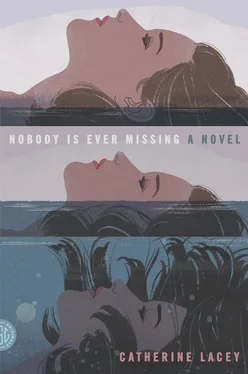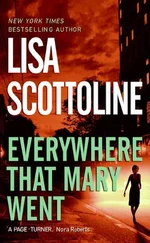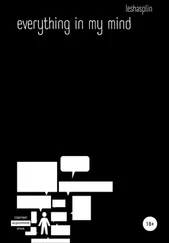Maybe it’s a kind of math we can’t do, something we failed, and when I think about you now I can’t think about you straight — it’s like you’ve turned into a color or a sound, like a whole orchestra warming up with the first violin doing one thing and second violin doing another and violin five doing whatever and violin seven doing nothing and cellos and drums and flutes all scribbling, no harmony, no pattern, no sense, no order. I don’t even know what I’m talking about or thinking about or whether I am talking or thinking, and maybe if I was a sound or a color I wouldn’t be a sound or a color, I’d be a wildebeest except that’s not true because I am a wildebeest. I am part wildebeest. Of course you’d say, That’s not true, you’re not a wildebeest , and you’d try to console me: We all have darkness , you’d say; but I know mine is darker and that it hides a whole herd of rabid wildebeests and I’m not like you, Husband, there’s no light switch in my darkness because my darkness is a midnight savanna on a moonless, starless night and all my wildebeests are running at a full, dumb speed but I couldn’t even tell you this if I tried because we haven’t really spoken in years, which is why I have put a distance of space and time between us, to make our silence make sense. Even if you picked up this unwritten letter and read it you couldn’t actually read it because it doesn’t exist because the wildebeests ate it and I’m sorry, but I’d still like to know:
Are you sleeping these nights?
Is your life livable?
Do you eat — do you eat anything at all?
Do you believe anyone cares if you are alive at the end of the day?
And where did our want go?
And who set fire to our wanting?
And who invented want and why?
Let me say that whoever invented wanting, whoever came up with desire, whoever had the first one and let us all catch it like a hot-pink plague, I would like to tell that person that it wasn’t fair of him or her to unleash such a thing upon the world without leaving us a warranty or at the very least an instruction manual about how to manage, how to live with, how to understand this thing that can happen in a person against her will, by which I mean desire and the need it gnaws in us and the shadow it leaves when it’s gone. And, yes, I know that this will always be our intolerable problem, one of those things we slowly go grey over, so forget it — forget what I was asking or saying and let me just ask you this: If you could hire a think tank to figure out what happened to us, would you do it? You’d think after all these months I’ve spent thinking about what we were and what we became that I’d have some kind of clue but I don’t have any. Do you have one? Could I see it? Could I borrow it? Or is this the kind of game where you keep all the clues to yourself until the game is over and someone opens the envelope and it says: It was the husband, in the office, with the chalkboard (which is funny because we were all so sure that it was the wife, in the kitchen, with the chef’s knife).
Sometimes I remember that afternoon you asked me to teach you how to hold a baby and put it into a crib because you didn’t know how to do this and I did know and you thought that you’d someday need this knowledge, this tiny skill, and even though I knew you’d most likely never need to know how, I still taught you.
You place a baby the same way you place a blame: put it down slowly — after careful deliberation — of where to place it — and cradle the head — and mind the neck.
Another nurse came in and recorded my temperature, blood pressure, and heart rate and she seemed unimpressed with the way my heart was flexing and the numbers on the thermometer. She put a wooden plank on my tongue, peered into my throat, removed the plank, and tossed it into the trash. She shined a little light in my eyes and into my ears and up my nostrils, again seeming annoyed when she found nothing of consequence in me.
Time to change this, too, isn’t it?
She started unwrapping the gauze and it appeared gradually more red than white and she peeled back a long flap of blood-soaked cotton. A slimy, red wound dimpled the center of my forearm. She sopped up streaks of blood, then said, This is going to sting a little , and poured something into that red dimple which fizzed, but I didn’t feel it. She held my wrist as she wiped off the underside of the wound then rewrapped the whole thing.
There we go , she said, smiling. She made eye contact for longer than I felt was natural or appropriate. You’re lucky — a couple millimeters one way and you would have bled to death.
She said the psychiatrist would be in soon and I tried to retain some dignity even though she knew that it had become necessary to have a psychiatrist come to assess my mental situation, but then I remembered that I didn’t have any dignity to retain, not since she had measured my heart and seen all my bleeding and examined every entry there was into the slimy middle of my skull.
Later the psychiatrist showed up: a bald man with delicate, wire-frame glasses pinched low on his bulbous nose, a thin bird on a thick gnarl. He wore a lighter grey shirt under a darker grey cardigan, and darker grey pants. He had little wisps of pale hair hanging off the sides of his head, the last spring leaves of him.
It’s often better if we’re on a first-name basis, Elyria. Is it all right if I call you Elyria?
Sure , I said, thinking of how I’d always be sitting under that word, my name, the terminal noise of me.
My name is Thomas.
He didn’t have a nice-to-meet-you look on his face but something more like a jeweler looking for authenticity.
First, Elyria — and I hope you don’t take this too personally — I will need to assess your intellectual ability. This is merely a formality to confirm you are fit to complete the next survey I’ll administer about how you’ve been feeling lately. Are you ready for part one?
I sat up a little, tried to make myself look kind and safe and trustworthy, a Labrador of a person. I said, I’m ready , and he gave me a short, yellow pencil and a clipboard pinching one sheet of paper with math and logic problems.
Please take as long as you need, Elyria. There’s no rush.
The assessment was just a few basic math problems like nine divided by three and four times five and other lines like this, problems that weren’t really problems at all, problems that were so simple they made my life problems seem unbearably complex. There were a few picture ones, too: A fish, a dog, a hammer — which does not belong? An apple, a tree, a helicopter — which does not belong? Still, I answered them all slowly, deliberately, making sure to match the seriousness with which this test had been given to me. All moments forever had led me to this moment with these equations and this drawing of a happy, slobbering dog, knowing the answers instantly, looking at the problems again, knowing the same answers, reading them again and trying to imagine if there was any possible way that I might be wrong, but each time I always came back to my first thought and after I had written my nine answers to the nine problems I felt a little exuberance because I knew at least nine things in this world to be just so plainly true, limbless facts. I wished, for a moment, that I had become a mathematician or an accountant or a factory worker so I could just have part of my day be full of NO or YES, ONE MILLION or TWO MILLION, or SAME, SAME, SAME, SAME. But instead I had this life that was populated with so many MAYBEs or ALMOSTs or PERHAPSes or I DON’T KNOWs that I felt that I was swimming or drowning or boiling in them, but here, in this quiet moment when I had finished the intellectual assessment but had not yet handed it back I tried to flatten my life out into a similar format:
Читать дальше












